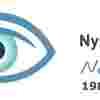Our resilience funding for Nystagmus Network is helping them to connect people living with nystagmus. As this life-changing charity celebrates 40 years of support and connection, we look at the important work they do and how we’re helping to fund it.
What is nystagmus?
Nystagmus is a complex eye condition, characterised by wobbling or flickering of the eyes. Infantile or congenital nystagmus, which people are born with or develop in early childhood, may have been passed down through the family.
While acquired nystagmus, which can appear in later life, can develop because of illness, injury, taking prescription or recreational drugs, or excessive alcohol use. Clearly this is a condition that comes in many forms, but it isn’t rare; around 2.4 in every 1000 people are diagnosed with some form of nystagmus.
-
- 2.4
- around 2.4 in every 1000 people are diagnosed with some form of nystagmus.
How Nystagmus Network supports people…
Their services are there for everyone, from newborns to people who have been living with the condition for decades, and covers everything from early years education to employment. The one thread that connects everything they do is quality of life.
“Bringing people together who are impacted by the same condition is so important,” asserts Sue Ricketts, the organisation’s Executive Information and Development Manager. “The strength of knowing you’re not the only one with this condition, and other people may struggle with the same things you do, is so empowering.”
How Nystagmus Network supports research…
We’re proud to have co-funded research with Nystagmus Network, including that of Dr Frank Proudlock and Dr Mervyn Thomas at the University of Leicester.
Sue knows this research brings optimism to the people she works with, “What has improved phenomenally since the early 90s is just how much information ophthalmologists can get from tests”, she explains, “I walk into test centres now and the equipment doesn’t seem to have changed very much, but the level of analysis they now have is so sophisticated. It used to be that someone was routinely sent for an MRI, but now they know that’s not always needed.”
What we’re helping to fund
Besides supporting research and offering information and advice to people impacted by nystagmus, the organisation hosts three or four in person meet ups each year. These life-affirming events, which our resilience funding is helping to enable, are a fundamental part of the organisation’s objectives, namely, to bring people living with nystagmus together.
“At one event earlier this year a young man turned up,” Sue remembers, “I recognised his name from our Facebook group but this was his first in person event. He’d never met anyone else with nystagmus and he was pretty overwhelmed. He soon connected with another young man around his age and I hope they’re still in touch. This never would have happened if we didn’t run these events.”
40 years of being indispensable
This year (2024) Nystagmus Network has been celebrating its 40th anniversary. Staff, volunteers and the board of trustees are all connected to nystagmus in some way and so the whole community has taken this anniversary as an opportunity to reflect on the incredible people they’ve supported over the years.
Sue herself became part of the network in 1991, when her daughter was diagnosed with nystagmus at just six weeks old. “The orthoptist happened to have a leaflet from the organisation in her office, and I called the helpline that evening. I started out as a beneficiary, then a volunteer and I’ve now been working with the charity since 2015. From that first phone call, Nystagmus Network changed my life.”

“The strength of knowing you’re not the only one with this condition, and other people may struggle with the same things you do, is so empowering.”
Discover more about eye conditions including inherited retinal disease in our A to Z.

Related content


